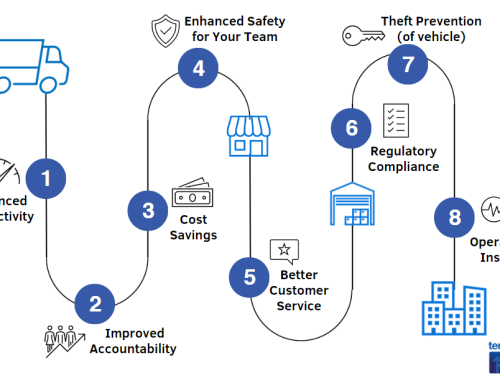Have you holiday-proofed your business? 8 actions to help you take a break with confidence
 I’m willing to bet that as a business owner, you need some time off (probably more than most). Unfortunately, you are among the least likely people to take that much needed break.
I’m willing to bet that as a business owner, you need some time off (probably more than most). Unfortunately, you are among the least likely people to take that much needed break.
A recent study performed by Prospa revealed that 57% of business owners plan to work the same (or more) hours as usual during the holiday season. Almost half only plan to take public holidays off or just keep working through.
Yikes.
As a business coach, these figures have me concerned. As I tell my clients, if you don’t take a break from your business, your business may just end up breaking you.
What’s more, for your business’ sake, it’s important to adopt a mindset (as early in the piece as possible) of your business being able to run without you. That’s always the goal; it’s the best way to grow a profitable business, run by a skilled and independent team, that will afford you financial independence and options for the future. This includes the ability to sell your business if that’s what you choose.
So… what’s stopping business owners taking their holidays?
As a business advisor, the main worries I’ve seen business owners present with (in terms of taking time off) stem from very valid concerns: negative impact on cash flow, lost opportunities or letting customers down by being unavailable.
The good news is that these are infinitely solvable problems. With a little planning, you can ensure that your cash flow stays healthy and that you still capture and capitalise on potential new business. Good communication with customers will help them work around your holiday plans, avoiding disappointment and helping you maintain customer relationships.
To help you step away from your business – even just for a short break – we’ve put together a list of eight things you can do to ensure that next year you are not only able to take that much needed holiday, but that you’ll be able to relax while you do.
8 actions to help you holiday-proof your business
One: Know your seasons
The first step in planning your holiday is knowing when to take it. There is no sense in an ice cream store closing over summer, just when everyone is lining up around the corner to buy their product. However, a holiday in the cooler months (while demand is low) makes perfect sense. The seasons in your business may be less obvious, but a little data mining into when sales seem to dip should give you an idea of when your time away will have the least impact.
Tip from a business coach: once you have decided upon when you might take a break, go ahead and book it in. There’s nothing like a non-refundable deposit to motivate you to take the necessary steps to make that holiday a reality.
Two: Plan for the hit to your cash flow
Once you have those holiday dates circled in red on your calendar, you can start putting aside the cash you’ll need to cover you for that period. This is especially important if your business is based around a model where if you don’t work, you don’t earn (eg a solo trade-based business). If you are in a position to bring on extra staff or increase team hours to cover your absence, then you will similarly need to save cash to cover that cost.
Tip from a business coach: Consulting with your financial advisor will ensure that you’ve covered off everything financially. This way you avoid nasty surprises that will no doubt spoil your post-holiday mood.
Three: Cross train your team
This tactic is really just smart management. An agile and resilient team is one where people can step into others’ roles as needed. Preparing your team for your absence, however brief, puts them in great stead for any future situation where ill health, a sudden need to attend to family needs etc or even the sale of the business may mean they need to be able to run the show without you.
Tip from a business coach: start this process early to give staff plenty of time to learn any new skills etc and maybe have a few practice runs. It’s also important to look at the existing skills and strengths of your team members as you make plans for who will take over what tasks in your absence. Aim to allow staff to play to their strong suit, while also giving them the opportunity to strengthen their skills and gain experience in areas where they are less confident. This process will result in an overall stronger dream team.
Four: Ask for help
If you don’t have a team you can upskill, think about asking those concerned friends and family members who are constantly telling you that you look tired and need a break. They’re likely more than willing to take on some of those essential admin tasks that will keep the home fires burning eg taking phone messages, managing email, following up on invoices etc.
Tip from a business coach: take this opportunity to create clear documented processes around those admin tasks – these will come in handy should you decide to outsource to a virtual assistant or take on a new staff member.
Five: Make use of tech
Modern technology is always promising to make business more mobile. If leaving certain tasks in capable hands isn’t an option, you can always handle them remotely using your mobile device. In addition to managing calls and emails, there are also plenty of useful apps to help you automate processes like payroll, invoicing, timesheets, finances and accounting etc.
Tip from a business coach: make sure you put healthy boundaries around how much time you allocate to managing your business while on holiday. While you may need to be realistic about completely disconnecting, you do want to make sure you are present with your family and do give yourself that much needed (and deserved) break.
Six: Open communication with customers and clients
Communicating your holiday plans to clients early and openly allows for everyone to adjust their own plans (and expectations) accordingly. This will go a long way towards building positive relationships, as it shows that you value their business and are willing to be flexible to meet their needs. You can always offer to fulfil their orders or deliver services early, or prepare them to deal with whoever is taking over in your absence.
Tip from a business coach: at a bare minimum, set up an outgoing phone message and out-of-office auto-respond email stating that you are on a break and when you will be able to get back to them. You can also use social media to put the word out that, while you are on a break just now, you’ll be back soon and ready to help them with their needs. Even these small efforts will put customers at ease and help you capture potential opportunities for new business.
Seven: plan for the worst-case scenario
Remember in a past post on tackling tough decisions when we talked about pre-mortems? That’s where you imagine the absolute worst-case scenarios and then map out everything that would have to happen for you to end up there. This same method can be used to mitigate all the ‘Murphy’s Law’ risks that could go wrong in your business if you take a holiday. At least that way you can reassure yourself that you’ve at least tried your best to head them off – which should go some way towards helping you relax while you are away.
Eight: Do it your way
If there’s one last ‘tip from a business coach’ that I’d like to include in this list, it’s that you must take your holiday break in a way that suits you, your family and your business. One person’s disconnect is another person’s nightmare. If you know you are not going to be able to relax unless you shut down operations completely, then go with that and plan your financials accordingly. If not knowing what’s going on back home has you breaking out in hives, go ahead and maintain that virtual connection using (limited) phone and email contact.
Finding your happy place when it comes to holidaying as a business owner may take a few goes to get it just right. That’s ok too. It’s a good excuse to keep trying different styles of holiday until you find the one that works best for you.
Your holiday may be a catalyst for positive change
In my years as a business coach, I can hand on heart say that I have never seen a situation where a business owner taking a holiday ruined their business. In fact, most of the time it becomes a tipping point, nudging you towards creating that healthier, more scalable, independent business that is closer to realising its potential. So, go ahead and book that holiday – it may be the best thing you do for your business in 2020.
—




